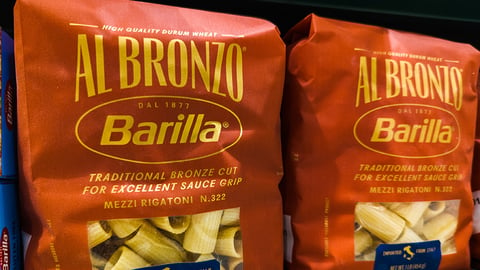How NotCo Is Keeping Products On Shelves Without Drowning In Data
As the consumer goods industry navigates supply chain and inflation disruption, having visibility into on-shelf availability is essential for meeting both consumer demand and experiences. This is no more so the case than for CPGs within the plant-based food sector, a category experiencing record growth.
U.S. retail sales of plant-based foods grew 6.2% in 2021, reaching an all-time high of $7.4 billion, according to data from the Plant Based Foods Association (PBFA), The Good Food Institute (GFI), and SPINS. This follows yet another unprecedented year of growth in 2020, with overall plant-based food retail sales increasing three times faster than total food retail sales in 2021.
What’s more, most plant-based categories outpaced their conventional counterparts, the firms noted, and conventional meat prices are being impacted by inflation. “With the rapid scale-up of the plant-based industry, plant-based products may soon be able to compete with animal products on price, further stimulating consumer demand,” they wrote in March.
While the plant-based meat market has leveled out a bit in 2022, it nonetheless remains strong, according to data emailed to CGT from SPINS, with other plant-based food categories growing tremendously. In June, refrigerated plant-based meatballs grew 16.3%; frozen plant-based burgers grew 2.9%; refrigerated plant-based deli slices grew 198%; and frozen plant-based fillets and steaks grew 87.4%, SPINS said.
[See also: Unilever Invests In Plant-Based Feedstock Alternatives]
NotCo, a key player in the plant-based category that bills itself as a food technology company, focuses on reinventing animal-based foods using only plants — and doing so in a way that’s both sustainable and affordable for the mainstream consumer. As part of this, it leverages AI-based software to help mimic the taste and textures of animal products, selling meat, dairy, and other food alternatives.
As both the category and its business has grown, NotCo knew it needed to invest in its ability to evaluate item on-shelf availability and prevent out-of-stock issues across its network. The company, once named one of Fast Company’s Most Innovative, tapped retail data platform provider Crisp, drawn by its ease of use and accuracy.
“Distributor data is not the most user-friendly,” Daniel Capraun, senior manager sales planning at NotCo, said to CGT, “and Crisp filled the gap in our reporting needs.”
Noting that “inventory management is key to success in the CPG world,” the investment has increased NotCo’s visibility into its inventory positions across the network, which in turn enables it to react more effectively to keep products in stock on the shelf. It can also measure product performance against benchmark velocities.
The reporting has also dramatically greatly improved NotCo’s weekly visibility of sales across its core distributors, helping it better understand ordering trends and backtrack to identify causal drivers, said Capraun. NotCo users, meanwhile, appreciate the ability to easily limit the data they want to view to their specific book of business, he added, preventing employees from getting inundated with data.
[See also: Unilever’s Newest Way to Boost On-Shelf Availability]
Having such proper inventory management at customer distribution centers is crucial for any consumer goods company that wants to improve its data visibility, Capraun advised: “Maintaining proper inventory levels with customers allows you to keep a high fill rate to store, which helps with the overall goal of getting your products into as many consumers' hands as possible.”
As for what’s next for the food tech company, it has both category and retail presence expansion on the horizon. The company recently entered into a joint venture with The Kraft Heinz Company as part of an ambitious plan to reimagine global food production for a more sustainable future, operating under the control of Kraft Heinz as The Kraft Heinz Not Company.
Headquartered in Chicago with R&D facilities in San Francisco, The Kraft Heinz Not Company will focus on plant-based innovation across a range of Kraft Heinz product categories.
NotCo is also closely monitoring the overall growth in plant-based food consumption, which categories are growing, and where it should enter next, Capraun said.








